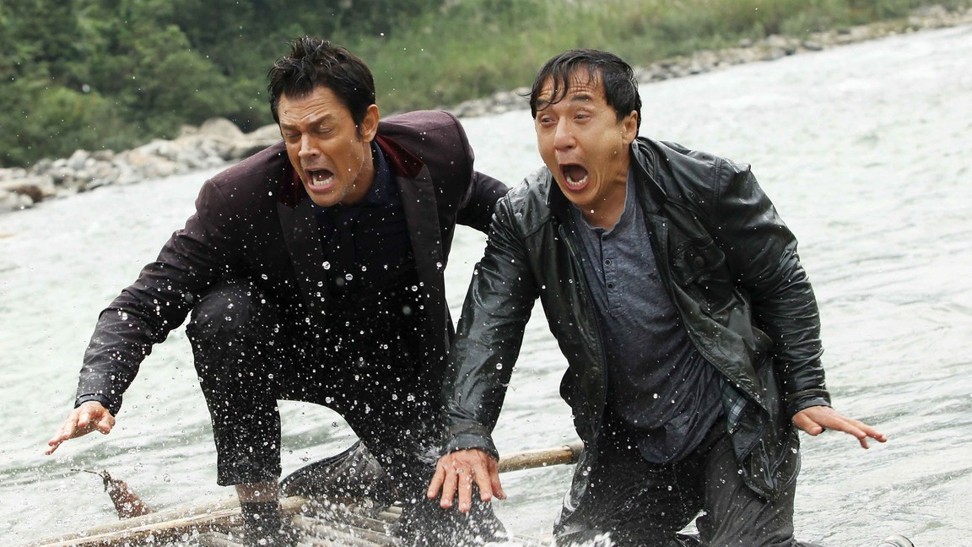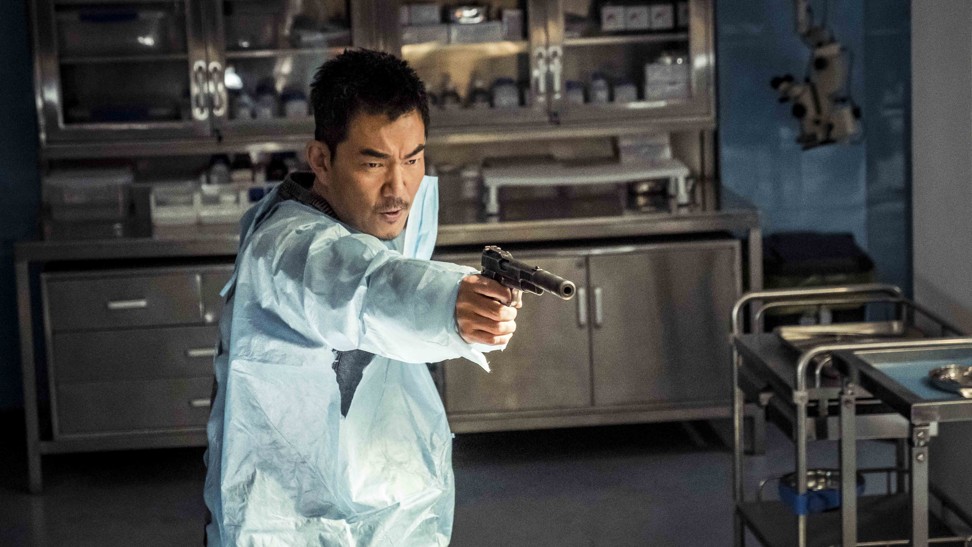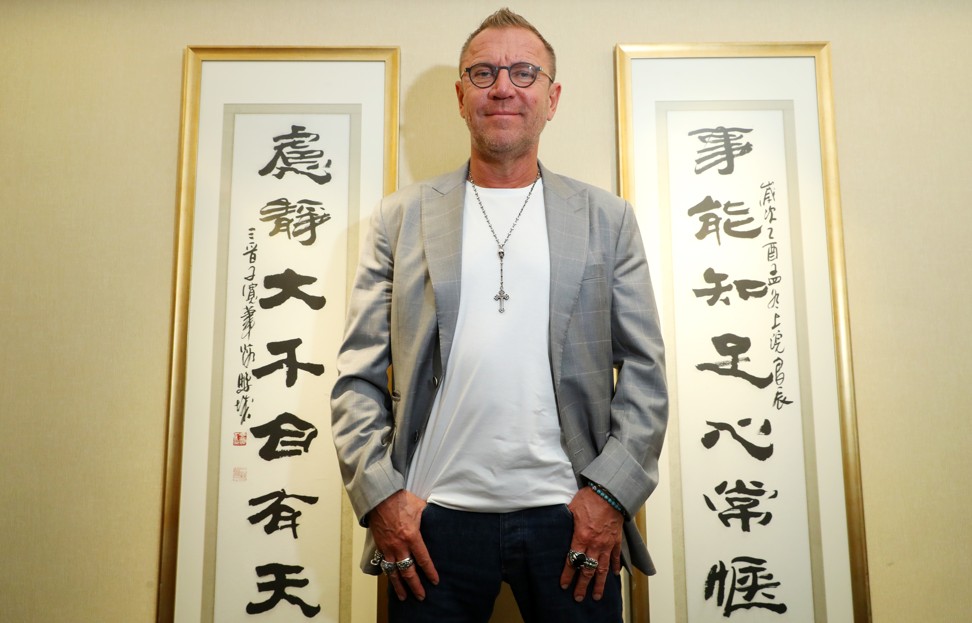Hollywood director Renny Harlin on his China career, directing Jackie Chan, and new film Bodies at Rest
Harlin moved to China five years ago to direct Jackie Chan in the hit 2016 release Skiptrace and has since made the country his home
He has tasted both success and failure since the move. Here he tells the Post all about his experience so far
Edmund Lee
Published: 9:00pm, 21 Aug, 2019

Film director Renny Harlin photographed in Wan Chai, Hong Kong, during an interview on his latest action thriller, Bodies at Rest, and his experience of making films in China. Photo: Edmond So
Renowned internationally for directing such popular action thrillers as Die Hard 2 (1990) and Cliffhanger (1993), Renny Harlin is now better known in the Chinese-speaking world as that rare Hollywood filmmaker who uprooted from Los Angeles and moved to China on a full-time basis.
It is five years since he arrived to direct Jackie Chan in the hit 2016 release Skiptrace. Since then, the Finnish veteran has founded his own company, based in Hong Kong and Beijing, to develop a range of feature films and TV shows for the China market. He has also had tasted failure: his second film after moving, last yearís Legend of the Ancient Sword, was a flop.
His third film since he relocated, Bodies at Rest, is a Hong Kong-China co-production. Set in a morgue on Christmas Eve, the story revolves around the attempts of a forensic expert (played by Nick Cheung Ka-fai) and his assistant (Yang Zi) to fend off a trio of masked criminals (headed by Richie Jen Hsien-chi), who have broken into the premise to look for a particular body.
The filmmaker recently sat down with the Post to reflect on his China experience.
Your new film, Bodies at Rest, is set on Christmas Eve. Does this setting remind you of Die Hard 2?
Yeah, I think itís funny to go for Christmas! At least in the Western world, Christmas is a peaceful time when families come together and everything is perfect. So the setting of a dramatic, explosive story during that time has always felt like a good idea to me.
When we talked about when the movie [should] take place, we talked about the fact that we wanted the villains to wear masks in the first part of the movie. What if they wear Christmas-themed masks? And then we kind of built the story around Christmas. I even tried to use some of the same music that I used in Die Hard 2, but eventually we didnít go with the song that I wanted to use.
Can you tell us a bit about the origin of this screenplay?
One executive from Wanda [Pictures] was going through Hollywood agencies looking for material. He read hundreds of screenplays, read this one and really liked it. He bought the rights for Wanda Ė it was a totally American movie at that point.

(From left) Yang Zi, Richie Jen and Nick Cheung in a still from Bodies at Rest.
Then the script was translated into Chinese. Then, Wanda hired a Chinese screenwriter to take the translation and make it a living, breathing Chinese story. When they decided to let me get involved with this movie, they translated that script back to English Ė so now itís the fourth generation of the film script.
I read that translation. You know how in Mandarin, words and sentences can be interpreted in so many different ways? There were literally things I couldnít understand. At that point, I asked to read the original American script. Now that I knew the movie they wanted to make, [I told them], ďI will write the script from the original American script.Ē
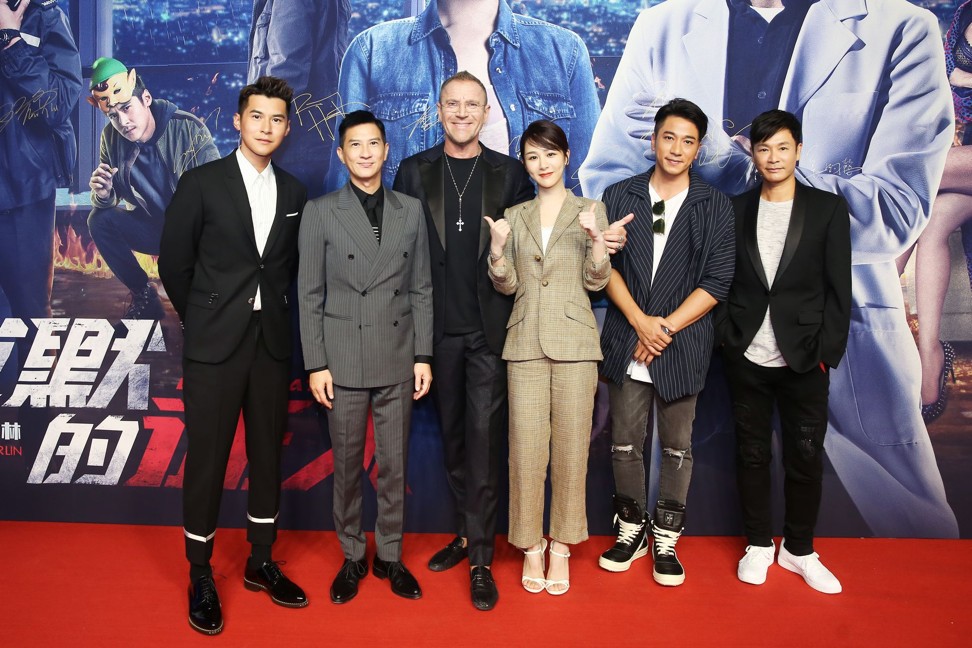
Harlin (third from left) and the main cast of Bodies at Rest at the Beijing premiere.
What was the process like to make that original script culturally relevant to a Chinese audience?
My company has a team of young film students who have graduated from UCLA [University of California, Los Angeles] and NYU [New York University] Ė theyíre Chinese and have come back. They are my advisers. With their cultural knowledge and understanding of humour, behaviour and all the details, we then created this screenplay that became the movie.
We wrote the screenplay simultaneously in English and Mandarin, which was then translated into Cantonese. It was a long process. This script represents a very typical example of the challenges for filmmakers like me. Itís hard for some Hollywood producers to come to make a co-production movie in China. Itís hard for them to comprehend how vast the cultural differences are.
Itís not just about the language, or eating or not eating certain kinds of food. Itís about human interaction, family, relationships and certain reservations that [Chinese] people have that Western people might not. For me, itís a daily learning experience.
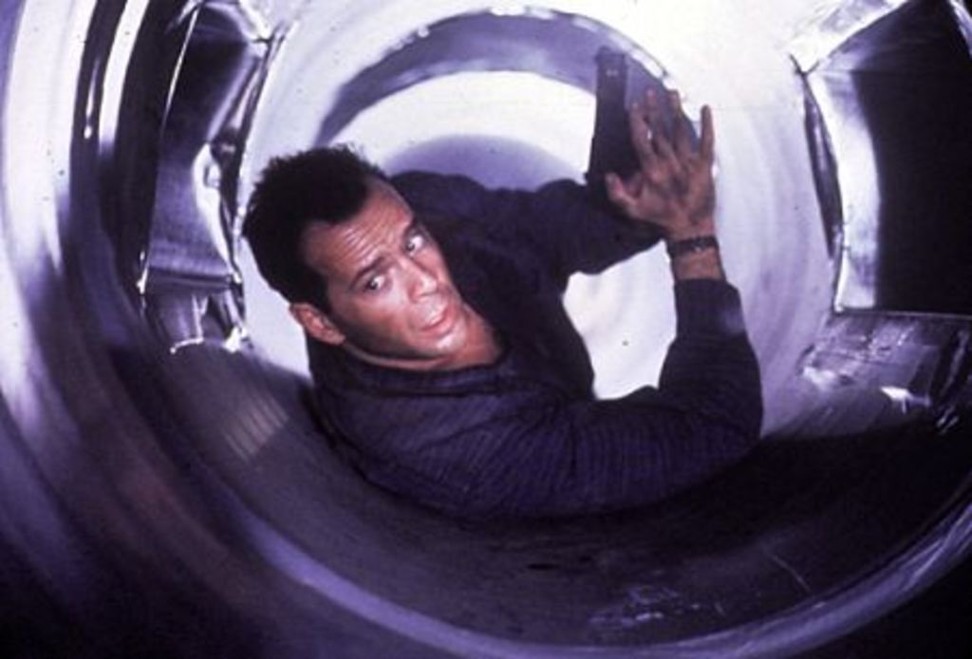
Bruce Willis in a still from Die Hard 2 (1990), directed by Renny Harlin. Photo: Twentieth Century Fox
Now that youíre completely based in China, how does it feel?
I feel like Iím in a very privileged position that I can live in China, and live this life and encounter these things every day Ė compared to somebody who flies in and does one project, and tries to digest everything that unfolds around them.
It was just being in the right place at the right time. I came here to do Skiptrace, and the journey started from there. I started researching locations and travelling around China, slowly learning things about people, history, culture and food. The more time I spent here, the more I loved it.
Of course, I still thought that it was just [going to be] one of the couple of dozen movies I made outside Hollywood. But things went so well [and] I really enjoyed working with a Chinese crew. I have so much respect for them; theyíre such hard workers and collaborators. Thereís also this sense of improvisation which was refreshing [when] compared to Hollywood.
The first movie went so well, the local people here asked me to stay and make more movies. The film industry was just starting to explode in China and they felt, with my Hollywood experience, maybe I could bring some ingredients into the filmmaking scene here.





 Reply With Quote
Reply With Quote












